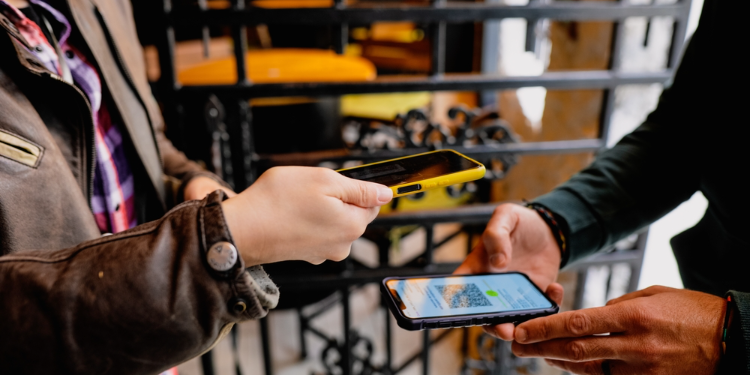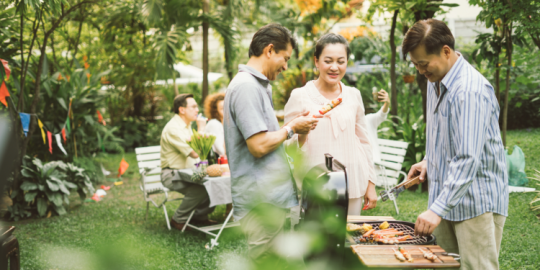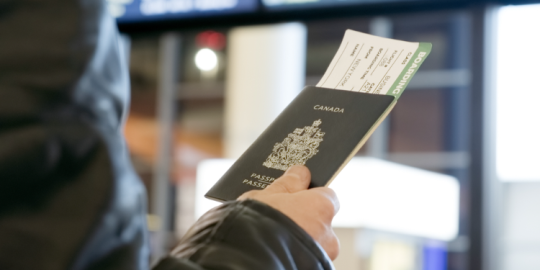Africa
With a rather low vaccination rate, Africa is paying the price for the pandemic and its consequences. The resurgence of malaria (due to Covid-19, according to the researchers), famines in Madagascar due to global warming, against a backdrop of political tensions in Libya, Mali, Cameroon and Egypt, are only making things worse. South Africa was trying to recover from the chaos this summer and kickstart its economy when the Omicron variant was discovered.
South Africa
According to WHO, the current intensive care unit occupancy rate is barely 6.3%. However, more than 170,000 new cases were recorded between November 28 and December 11. But for Mondli Gungubele, minister in the presidency, another lockdown would be a major risk for the economy. For the moment, the government is sticking to its anti-Covid policies, such as the compulsory wearing of masks (in public places, busy neighbourhoods, etc.), barrier gestures, and vaccination. The country is boosting its vaccination campaign, which, in the opinion of Mondli Gungubele, is the only way to contain the pandemic. Some 300,000 vaccines are currently being administered per day, but this still isn't enough. South Africa is relieved regarding international travel after the WHO appealed to countries worldwide to reopen borders. President Ramaphosa, however, chose to repeal the 2010 agreement that allowed Zimbabweans to come and work in the territory via a special permit. So these expats have until the end of 2022 to return home. While the opposition condemns a populist drift, the government insists that this is just another sanitary measure.
Ghana
Ghana is stepping up security measures to fight the pandemic through vaccination. It's worth noting that 60% of new cases come from Kotoka International Airport, the country's main airport. The government fears an upsurge since barely 2.6% of the population is fully vaccinated, and about 10% has received at least one dose. Therefore, local authorities are imposing compulsory full vaccination to enter or leave the country. A 14-day quarantine has also been made mandatory for unvaccinated Ghanaians and foreigners who wish to travel. Vaccination services are provided at the airport. In short, unvaccinated will have to get their second jab to be allowed to travel. In addition to these new measures, a negative PCR test is requested before boarding the flight, and an antigen test is carried out on arrival in Ghana. The country is currently facing its 4th wave of Covid and reported its first cases of the Omicron variant last week.
Algeria
The Algerian Ministry of Health is increasingly calling for vigilance. Now is not the time to party, but to be cautious. Where international travel cannot be postponed, there must be strict compliance with the current health protocol, including a negative PCR test less than 36 hours before departure, antigenic test on arrival, isolation of at least five days. Celebrations and large gatherings remain prohibited. Wearing a mask is compulsory in public places. Restaurants and bars are open but under conditions. Following a recent surge in school-related Covid cases, the government decided to prepone the winter vacation date (December 9 instead of 16; the end date remains January 2, 2022). So there will now be three weeks of vacation instead of 2. The aim is to boost vaccination since barely 12.34% of the population is fully vaccinated (figures from December 7, 2021).
Oceania
Oceania seems to be faring better than Europe or the Americas. 62.8% of Caledonians are fully vaccinated, 65.7% for Fijians, 75% for Australians, and 77.7% for New Zealanders.
Australia
Southeastern Australia is currently experiencing a rise in Omicron variant cases. The latest news points out 84 people in connection with a nightclub have tested positive. With potential new Omicron cases and at least 680 contact cases identified, they were requested to get tested and to self-isolate for 7 days. Local authorities have tightened penalties for violators. There's a $ 5,000 fine for individuals who fail to comply with mandatory testing and isolation rules (instead of $ 1,000 previously). For companies, the fine rose to 10,000 dollars instead of 5,000. Australia had to let go of its "zero Covid" strategy since it decided to reopen its borders on December 15, only to vaccinated WHV (Working Holiday Visa) holders. The country remains determined to limit the spread of the virus, especially with the arrival of Omicron.
Europe
Europe recorded a slight decline in infections, but the situation remains critical. Countries are increasing restrictions, including compulsory vaccination. Austria was the first country to impose it, followed by Germany and Greece. In France, conflicts between vaccinated and unvaccinated people look like opponents.
France
France has activated its "white plan" in several regions, with the aim of reaching the rest of the country. The wearing of a mask is once again compulsory in schools (since children are particularly affected by this 5th wave) and outdoor areas, even in places where the health pass has been made compulsory. Regarding international travel, unvaccinated people over 12s coming from an EU country must now present a negative PCR test carried out within 24 hours. For people coming from outside the EU, it must have been carried out within 48 hours. Nightclubs will remain closed for at least 4 weeks. Remote working is recommended wherever and whenever it's possible. Family get-togethers are allowed, but with restrictions until the end of the year. Prime Minister Jean Castex appeals for responsibility so that everyone can enjoy Christmas, at least. For now, only 6 people are allowed to be seated at a table, and the wearing of a mask is recommended, even indoors. Barrier gestures and regular ventilation are still recommended, as in 2020. The same goes for shops and restaurants since there is no lockdown or curfew. However, things can change quickly, so the government is not ruling out further restrictions if the situation does not improve this week.
UK
More than 3,000 cases of the Omicron variant have already been reported in the UK. Faced with an alarming situation, the government switched to "Plan B" with new restrictions. Remote working is recommended as soon as possible; wearing masks is required in public places, transport, shops. Besides, the health pass and a negative PCR test are required for nightclubs and large gatherings. Regarding international travel, a negative PCR test carried out within 48 hours is required to enter the UK (for people aged 12 years and above). They have to self-isolate until the day they get the results. The same applies to Scotland, where cases of Omicron infections having no link with overseas travel have been detected. From now on, contacts of positive Covid cases have to self-isolate for at least 10 days, whether they are vaccinated or not, and tested negative or not. But the population doesn't share the same opinion. Some Britons are condemning underground parties held last winter in Downing Street, with videos proving one of them. But Prime Minister Boris Johnson, who still denies the existence of these parties, has already called off the year-end celebrations. According to him, Omicron's exponential growth could lead to a sharp rise in hospital admissions and, therefore, sadly, deaths. With a death toll of nearly 150,000 already, the United Kingdom is paying the heaviest price in Europe for Covid-related deaths.
Germany
For Berlin virologist Christian Drosten, Germany is very likely to have issues with Omicron in January. The executive power, led by the new Chancellor Olaf Scholz, took note of this observation and reinforced its restrictive policy. The 2G rule (geimpt und genesen / vaccinated or cured) still prevails. Unvaccinated people are nearly locked down and have little or no access to most things. Their outdoor and indoor interactions must be limited: a maximum of two people per household and strict compliance with barrier gestures. Meanwhile, vaccinated people are allowed into non-essential shops, cultural and sporting venues, restaurants, etc. Former Minister of Health Jens Spahn believes that if all German adults were vaccinated, the country would not be in such a situation. From now, large events are only allowed to accommodate 30% of their total capacity. Nightclubs remain closed in the most affected areas. Complete vaccination shall be compulsory by February. Belgium, Poland, the Netherlands, Austria and Switzerland are now considered high-risk countries. Travellers who are not fully vaccinated or cured should observe a 10-day quarantine and perform a PCR test. Quarantine may be reduced to 5 days if the test results are negative. Scientist Karl Lauterbach, Spahn's successor, would like even more restrictions. In his opinion, only vaccination and barrier measures will contribute to overcome the crisis.
Slovakia
Is Slovakia an exception? Other European countries are blaming the country for lack of restrictions, although it has the highest contamination rates on the continent (more than 137,000 cases between
November 28 and December 11). The truth is that Slovakia is relaxing rules but only for vaccinated people. The country is emerging from a two-week partial lockdown and is paying particular attention to the exasperation of the vaccinated population, especially during the holiday season. Vaccinated people are now allowed to go shopping, skiing or to church. Minister of Health, Vladimir Lengvarsky, warns that the situation remains very serious. Still, he claims that everything is under control.
Americas
The year is ending in a tragic way for the United States. Vaccination has slowed down, leading to a rise in contaminations. Inflation has become a serious threat, and recent tornadoes brought chaos in certain affected regions. Canada is also concerned with Omicron. In Latin America, the pandemic exacerbates economic and political tensions.
United States
Barely a month after the border reopening, the United States is closing down partially as a consequence of the Omicron variant. To date, only of the population is vaccinated 60.7%. The new wave is particularly virulent, with more than 1,600,000 new cases between November 28 and December 11). In the United States, the death toll is heavier this year than last year. The Centers for Disease Prevention and Control (CDC) is urging US nationals to avoid travel to high-risk countries. Controls are also being reinforced upon arrival. A negative PCR test carried within 24 hours is required on arrival in the country, even for vaccinated travellers. Some States are reinforcing existing measures too. In New York, the wearing of a mask has been made compulsory once again in all businesses and public places, from December 13 to January 15 (holiday period). For Governor Kathy Hochul, this measure is essential to break the contamination chain.
Argentina
Following its first case of Omicron, Argentina is making the health pass mandatory from December 21 for those over 13 years old. All gatherings and activities (church, sport, cultural activities, etc.) will now require the pass. For the moment, only the province of Buenos Aires (with 18 million inhabitants) is concerned. Buenos Aires, the capital city, is not yet concerned. The borders remain open to fully vaccinated travellers as long as they can present a negative PCR test obtained 72 hours before departure and Covid insurance.
Brazil
President Bolsonaro had initially refused the introduction of a health passport to enter the country, but Luis Barroso, judge of the Supreme Court, made this measure compulsory as a direct consequence of the entry of the Omicron variant into Brazil. In the judge's opinion, the health passport (or vaccination certificate) is the only device that will prevent the virus from spreading. So far, only a negative PCR test was required to travel to Brazil. The reinforcement of policies actually responds to a demand from the centre-left opposition and Anvisa, the country's health regulating authority. Still, Judge Barroso's decision has to be assessed by nine other judges of the Federal Supreme Court. But it can already be considered a victory. Anvisa also recommends a 5-day self-isolation for unvaccinated travellers, including Brazilians. This measure should have come into effect last Saturday, but a cyberattack on the Ministry of Health's website prevented travellers from updating their vaccination certificates. So this new regulation has been delayed for a week. For the government's opponents, quarantine alone is not the ideal solution. Besides, the health pass is already mandatory in some areas, but this hasn't stopped the pandemic. In fact, more than 100,000 new cases were recorded between November 28 and December 11.
Asia and Middle East
Asia and the Middle East look quite steady in the fight against Covid. However, multiple disparities and tensions are ongoing in Asia, including Myanma and Taiwan. Faced with Omicron, South Korea and Qatar are being extra cautious.
Qatar
The Ministry of Health claims that everything is under control in Qatar. Barely 146 new Covid cases were reported as of December 12. On December 11, 77% of the population was fully vaccinated. Health protocols such as social distancing, limited to no interactions, especially in closed and poorly ventilated or very crowded spaces. The wearing of the generalized is compulsory. In case of symptoms, people are urged to dial 16-000. One of Qatar's strategies is to identify the symptoms as early as possible to break the chains of contamination and accelerate treatment. The Ministry of Health has also boosted the vaccination campaign, especially the booster dose. Supported by doctors and professors to clear misconceptions, the Ministry of Health is very active on Twitter. From its latest tweets, it can be deduced that vaccination is safe and recommended even for pregnant women, those planning a pregnancy, and for children as well. Regarding international travellers, they are classified into two groups: those from "safe" countries (green list) and those on the red list. Needless to say that the rules are stricter for people coming from red-listed countries and even more stringent if they are not vaccinated.
South Korea
With 80.4% of its population fully vaccinated and 11.7% of eligible people having received their 3rd dose, South Korea is looking to face the new wave efficiently, considering the Omicron variant. Restrictions have been reintroduced, and the booster dose campaign has been accelerated. Prime Minister Kim Boo-kyum recently announced that the government has decided to close the gap so that all adults can receive an additional dose three months after the initial vaccine. South Korea is thus embarking on a new plan: the "Living with Covid-19" plan. In the early days of the pandemic, South Korea was one of the first countries to introduce the "zero Covid" strategy. Today, it is more about vaccination and respecting barrier measures. The health pass is required in restaurants, cafes, gyms, saunas, nightclubs, etc. Public and private gatherings are limited to 6 people in Seoul and 8 people outside the capital. Still, discrimination has been observed. Last November, a nursery in Gimhae (south of the country) tried to make the PCR test mandatory for foreign children, but it had to give up, faced with discontent and bitterness among foreigners. Similar issues arose with vaccination. For instance, foreigners vaccinated outside South Korea are considered unvaccinated and therefore excluded from a whole part of the socio-economic life. South Korea does not recognize their vaccine status. However, South Koreans vaccinated abroad do not have this problem. Expats in South Korea are fighting for their rights with the support of international authorities. British, Indian, Canadian, American and Australian embassies are urging South Korea to recognize the vaccination status of their citizens.
India
The country had just reopened, and it will remain, but under conditions. India now requires all travellers, vaccinated or not, to take a PCR test upon arrival in India. This adds to the mandatory test carried out 72 hours before departure. For travellers from high-risk countries, restrictions and controls have been strengthened. These include compulsory self-isolation for 7 days in hotels requisitioned by the government and 7 additional days in the case of a positive PCR test. These conditions are likely to evolve, so it is recommended to check directly with the Indian authorities before travelling. Inside the country, wearing a mask is compulsory in public places. Gatherings of more than 50 people are prohibited. Restaurants and bars are open. But although the economy is showing signs of improvement, the Omicron variant remains a major threat. India is the third country with the highest death toll (475,000) behind Brazil (over 610,000) and the United States (nearly 800,000).
What's in for 2022?
The good news is that Omicron seems less virulent than Delta. But it is more contagious. Some fear a new wave after winter vacation. French professor Gilbert Deray, calls for solidarity. In his opinion, the variants and new waves will go on as long as there is vaccine inequality around the world. He regrets the individualism of states as the pandemic has both short and long term consequences, including job cuts, interrupted trade, recession, rise in inequalities, rise in extremism, etc. Other researchers point out the proliferation of anti-restriction demonstrations all over the world -- which is a sign of a social divide. According to them, these movements are counterproductive for the unvaccinated, who will, unfortunately, have to bear the consequences of poor economic health. State budgets are strangled by multiple stimulus packages. For critics, this is nothing but money "thrown out the window, until the vaccination follows". For most countries today, the priority is the same: vaccination is the key to ending the pandemic.
















